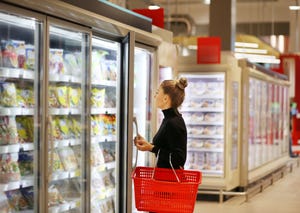USAID, FAO working to pre-empt next global pandemic
More than 4,700 veterinary professionals in 25 countries trained in disease surveillance, biosecurity and control methods.
March 9, 2018

A U.S.-U.N. Food & Agriculture Organization (FAO) partnership working to strengthen the capacity of developing countries to manage outbreaks of diseases in farm animals has, in just 12 months, succeeded in training more than 4,700 veterinary health professionals in 25 countries in Africa, Asia and the Middle East.
The FAO-provided technical trainings covered a gamut of key competencies, including disease surveillance and forecasting, laboratory operations, biosafety and biosecurity, prevention and control methods and outbreak response strategies.
All told, 3,266 vets in Asia, 619 in West Africa and 363 in the Middle East benefited. They are on the front line of the effort to stop new diseases at their source, FAO said.
"Over the course of this relationship, we've learned that there are many mutually beneficial areas of interest between the food and agricultural community and the human health community," said Dennis Carroll, director of the U.S. Agency for International Development's (USAID) Global Health Security & Development Unit. "A partnership with FAO not only enables us to protect human populations from future viral threats but also to protect animal populations from viruses that could decimate food supplies. It's not just a global health, infectious disease issue but also a food security, food safety and economic growth issue."
FAO chief veterinary officer Juan Lubroth said, "Some 75 of new infectious diseases that have emerged in recent decades originated in animals before jumping to us Homo sapiens, a terrestrial mammal. This is why improving adequately discovering and tackling animal disease threats at source represents a strategic high ground in pre-empting future pandemics.
"A proactive approach is absolutely critical, and for that, the world needs well-trained, up-to-speed professionals — biologists, ecologists, microbiologists, modelers, physicians and veterinarians — which is why the United States' consistent support for building up that kind of capacity has been invaluable," Lubroth said.
Viral risks
Population growth, agricultural expansion and environmental encroachment and the rise of intercontinental food supply chains in recent decades have dramatically altered how diseases emerge, jump species boundaries and spread, FAO research has shown.
A new study just published by Carroll and experts from several institutions, including FAO, suggests that only 0.01% of the viruses behind zoonotic disease outbreaks are known to science. The authors have proposed an international partnership, The Global Virome Project, aimed at characterizing the most risky of these. Doing so would allow more proactive responses to disease threats, with benefits not only for public health but also for the livelihoods of poor, livestock-dependent farming communities.
The close FAO-USAID partnership on animal health goes back over a decade. Experts from the two organizations are meeting in Rome, Italy, to review the progress achieved in the past year and how to respond to threats like species-jumping zoonotic illnesses and the growing trends of antimicrobial resistance and options for intervention measures in food production and protection of public health.
Economic impacts
Beyond the risks posed to human health, animal diseases can cost billions of dollars and hamstringing economic growth, FAO said.
The most damaging outbreaks of high impact disease in recent decades all had an animal source, including H5N1 highly pathogenic avian influenza, H1N1 pandemic influenza, Ebola, severe acute respiratory syndrome and Middle East Respiratory Syndrome.
For example, FAO said the H5N1 outbreak of the mid-2000s caused an estimated $30 billion in economic losses globally; a few years later, H1N1 racked up as much as $55 billion in damages.
You May Also Like



